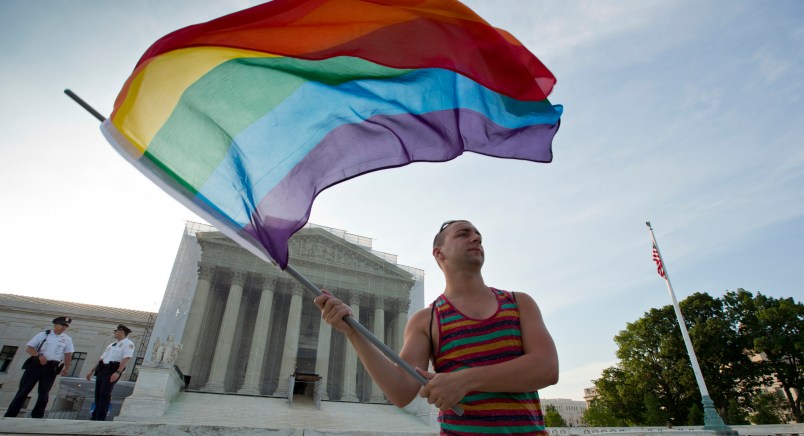A state judge in Tennessee has upheld a law banning recognition of same-sex marriages, snapping the extraordinary winning streak for marriage equality in several dozen state and federal courts since the Supreme Court ruling U.S. v. Windsor in June 2013.
Circuit Court Judge Russell E. Simmons ruled that Tennessee need not recognize the union of Frederick Michael Borman and Larry Kevin Pyles-Borman, who married in August 2010 in Iowa. The judge invoked Tennessee’s state laws defining marriage as between one man and one woman.
“Tennessee’s laws further provide that if another state allows persons to marriage who are prohibited from marriage in Tennessee, then that marriage is void and unenforceable in Tennessee,” he wrote in a ruling last Tuesday, which has now been published online by Lyle Denniston of SCOTUSblog.
Denniston pointed out that it was the first time a gay marriage ban survived a challenge in any court since Windsor, in which the Supreme Court said the federal government may not deny benefits to married same-sex couples.
“More than two dozen courts, from trial courts to state supreme courts and federal appeals courts, have faced that constitutional issue, and the string of decisions nullifying the bans was unbroken until the Tennessee decision,” he wrote.
The issue is quickly making its way back up the legal chain. Two federal appeals courts have already ruled that gay marriage bans are unconstitutional. The Supreme Court is expected to have the final word.
The Tennessee judge’s ruling isn’t likely to impact the federal cases.
“As for what it all means, I think the simple answer is that the fact that one trial judge in one state issues an opinion is wholly insignificant,” said Jesse H. Choper, a professor at UC-Berkeley School of Law.







State judge; elected official. Meaningless
So some STATE judge in TN thinks that TN laws trump the Federal laws and rulings in appeals court, including the appeals court that is over the state of TN.
Translation - this judge is a fool and will be over ruled when the issue is taken to federal court, which it will if it has not already.
Wannabe
Presumably wanted to get his name in the paper.
Note to TPM: That file photo with the rainbow singlet has GOT to go.